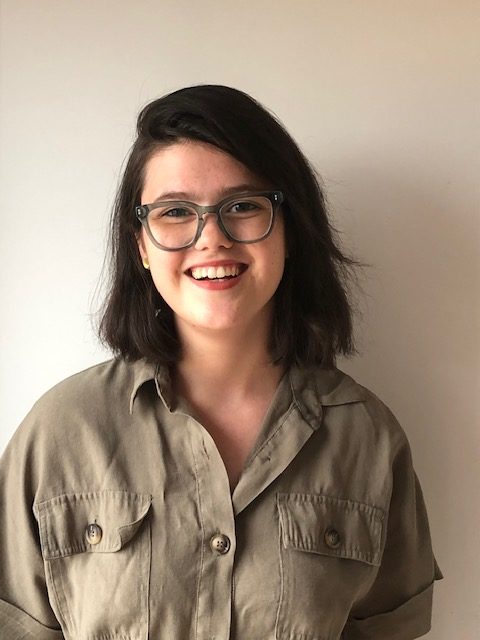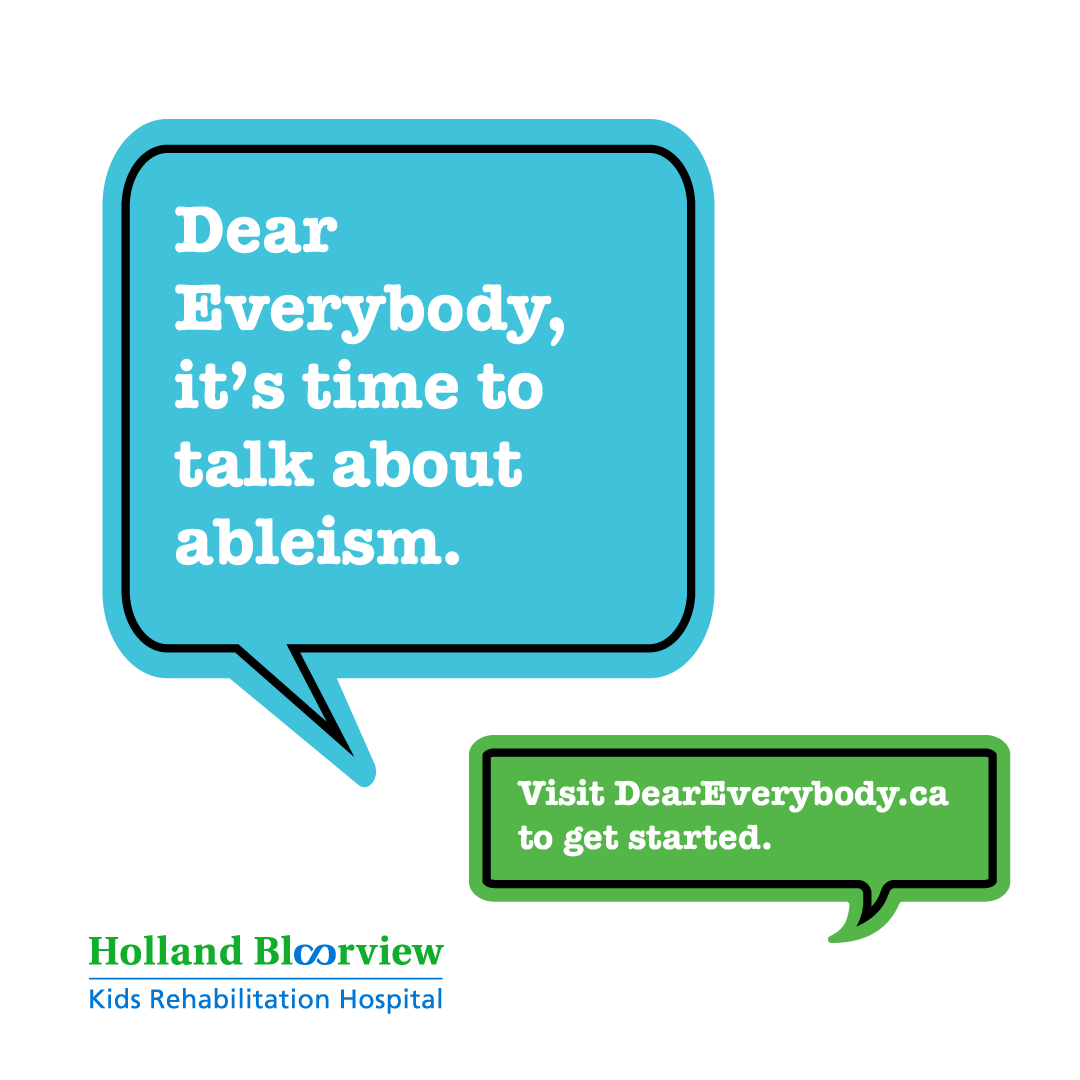Let’s talk about…
Ableism on Campus

Although the third year of university usually keeps Emma busy with English literature and history, it doesn’t stop her from reading, hanging with friends, or baking yet another batch of chocolate chip cookies.
It also hasn’t stopped her from taking the time to volunteer at Holland Bloorview—a place where her earliest memories are filled with swimming lessons and Spiral Garden summer camp.
Emma first came to Holland Bloorview after being diagnosed with cerebral palsy, which primarily affects her legs. At just 10-years-old, she became an ambassador for the hospital, and is still actively involved in the community today.
What motivates you to continue volunteering with Holland Bloorview?
During my first week in my student apartment, a friend of a friend came over to visit and one of the first questions they asked me was, “What’s wrong with you?”
That question obviously made me uncomfortable, but it wasn’t all that unusual. What was unusual was when they asked me to walk for them. No one had ever asked me that before, so I just panicked and did what they asked. I was surprised, my friends were surprised, and I think that the whole situation shows how uncomfortable some people are around disability.
It’s interactions like these that encourage me to continue to advocate for disabled people.*
Where do you experience ableism most often?
It’s difficult for me to say because ableism can happen anywhere, but I think I’ve become more aware of my own experiences and those of other disabled people just by going to university. Campus is a bigger place with so many challenges that I didn’t think of when I was in high school.
When I first came to university, I wasn’t anticipating any ableism because I came from a small high school where everyone knew me. They might not have known what my disability was, but it certainly wasn’t a concern. Then, I went to a university of over 20,000 students, and even if someone didn’t ask any questions, the way that they would stare told me that they were thinking of me differently because of how I walk.
For example, during Orientation Week, we had to go on a mud run. Even though I knew it might be a challenge, I thought: “I want to meet people, I want to get involved, and so I’m going to do this.” At first, it went pretty well, but then there was this 10-foot wooden wall that I had to scale. That was something I would have tried if I was with people I knew well, but it was a no-go in this instance. When I told people I wasn’t going to scale the wall, their behaviour towards me changed completely, and they started to doubt what I really could do.
How do you confront those questions or stares?
A lot of people assume I injured myself, and so they ask questions like: “How did you sprain your ankle?”
These kinds of questions are based on this assumption that it couldn’t possibly be a disability, and I think that assumption comes from not seeing disabled people in their day-to-day lives. So, I think that the first step to confronting ableism is to acknowledge that disability exists.
How can we acknowledge disability in that way?
I’m also bisexual, and when I talk about bisexuality, I’m privileged in the sense that most people know what it means and are accepting. However, I don’t often get that same understanding and acceptance when it comes to my disability. It’s strange that we have this rhetoric that says treat everybody the same—regardless of your sexual orientation, for example—but disability is all too often excluded from that conversation.
That’s why it’s so important to have conversations like these, where we talk about ableism and disability in a way that’s not patronizing or uncomfortable, but informative.
